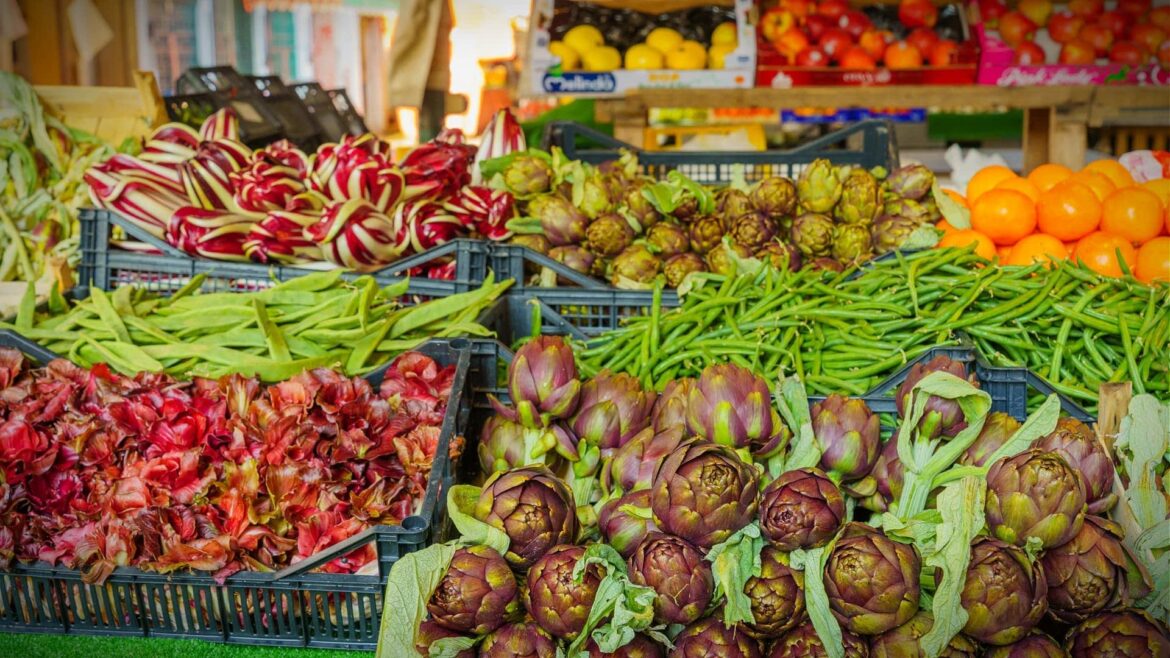Summary
The demand for organic food products is driving Italian organic agricultural production, with organic food sales in Italy increasing by 133 percent in the last 10 years and exports of Italian organic products rising by 181 percent in value. The export value of organic agricultural products in Italy is expected to reach €3.4 billion in 2022, with wine being the most popular organic food product sold internationally by Italian companies.
The growing demand for organic food products is fueling Italian organic agricultural production.
In the last 10 years, organic food sales in Italy have grown by 133 percent. Similarly, exports of Italian organic products have risen by 181 percent in value in the same period.
Eighty-one percent of these exports are food, with the remaining portion comprising cosmetics and other agricultural-related health products.
See Also:European Awards Champion Organic Agriculture
According to the latest data published by Nomisma, a consultancy, the export value of organic agricultural products rose from €1.2 billion in 2012 to an expected €3.4 billion in 2022. The value of organic food exports in 2022 will exceed €2.7 billion, a 16 percent year-on-year increase.
Today, organic exports represent 6 percent of the overall value of Italian agrifood exports. According to Nomisma, Italy is the second largest organic food exporter behind the United States, whose exports exceeded €2.98 billion in 2021.
Wine is by far the most appreciated organic food product sold by Italian companies on the international market, representing 19 percent of all organic export sales. By comparison, total wine sales account for 13 percent of Italian agricultural exports by value.
Nomisma estimated that Italian organic food exports to grow in the next three years, mainly in Germany (+53 percent), northern European countries (+32 percent) and the United States (+25 percent).
In international and national markets, interest in organic extra virgin olive oil is also growing. In a recent report, the Institute of Services for the Agricultural and Food Market (Ismea) said organic extra virgin olive oil production reached 46,000 tons in 2019, valued at approximately €200 million.
Ismea said organic extra virgin olive oil sales had been fueled by rising public demand and the higher prices producers can charge for organic oils, traditionally between €0.20 and €0.40 more.
Outside of Italy, interest in organic extra virgin olive oil has also grown recently. Organic olive oils won about one in three awards at the 2022 NYIOOC World Olive Oil Competition, the world’s largest olive oil quality contest.
In its report, Nomisma said organic food consumption is driven mainly by household consumption – as opposed to restaurant or hospitality consumption – growing 4 percent between 2020 and 2021 to reach almost €3.9 billion.
In 2021, 89 percent of Italian families bought at least one organic product. In 2012, about 50 percent of families did the same. Today, 54 percent of Italian families consume organic food products at least once per week.
Quality and health benefits are the most relevant drivers of organic food purchases. Thirty-nine percent of consumers interviewed by Nomisma also cited sustainability and respect for biodiversity as influencing their decisions. Twenty-eight percent of consumers ask for organic food containers to be 100 percent recyclable.
According to Nomisma, large retailers make up 56 percent of all organic food sales to families and restaurants, with a total value of €2.2 billion in 2021.
Still, the report highlights an 8‑percent growth between 2020 and 2021 for sales by specialized organic food retailers, which now account for 26 percent of the market. Five percent growth also is expected for other organic food sales channels, such as pharmacies, fairs and local markets.

